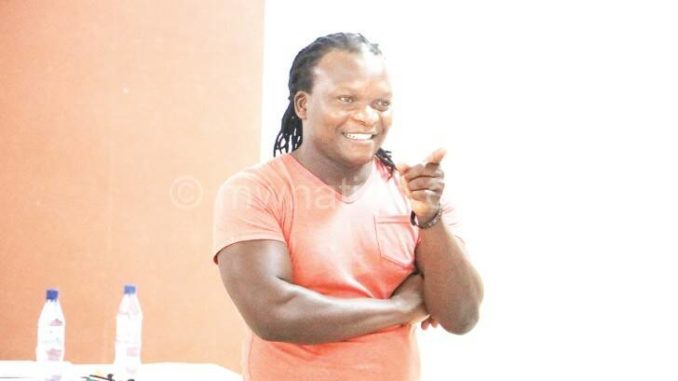
A minority rights non governmental organisation in Malawi has opened clinics from where at risk men access health services, JAMES CHAVULA writes in Nation Newspaper
A man hurried across a street in rush-hour traffic, pacing into a fenced office block in Nyambadwe low density residential area in Malawi’s second city of Blantyre.
The front doors of the building were open throughout the lunch break. Men, both young and old, kept dropping in to play pool, throw darts, lift weights and watch televised soccer matches as some went to see a nurse, who runs the men’s health clinic run by Centre for the Development of People (Cedep).
Records show the nurse, taking down sexual histories of men having sex with men (MSM), screens up to 20 clients for HIV and sexually transmitted infections daily.
They are mostly excluded from healthcare services but disproportionately at risk of HIV and STIs.
The arrivals excite Cedep project officer Dunker Kamba a little.
He wishes sexual minorities were free to access sexual health services in public clinics without fear of medical staff who are supposed to assist all people equally.
“Stigma persists and government needs to orient health workers in sexual orientation and gender identification,” he says. “MSM clients would not be seeking basic services here if public health facility were friendly. Studies and personal testimonies show that sexual minorities often suffer dehumanising treatment at the hands of staff in public facilities.”
Since 2014, Cedep has opened five men’s health centres—Luwinga in Mzuzu, Area 47 in Lilongwe and Chipalamamba in Mangochi—where MSM clients are assisted with utmost privacy.
“This is a milestone,” says Kamba. “Although we expect health workers to treat all people humanely, it is pleasing that Cedep is reaching our target audiences by creating safe spaces for sexual minorities and defending their rights.”
The clients dropping are thrilled with the breakaway from being slighted by health workers in a belief that homosexual people are perverts and the worst sinners.
Ministry of Health spokesperson Adrian Chikumbe urges against this “unethical tendency”, saying health workers are supposed to treat all clients equally regardless of cultural and religious beliefs.
But some gay persons in Blantyre say they suffer violations of patients’ rights and fear to complain to ombudspersons because their colleagues were arrested by the police in State-run clinics.
“Homosexuality remains illegal and utterly misunderstood in the country. When men having sex with men go for STI screening, some health workers are reluctant to help. Instead, they summon their friends, gaze at you like a monkey in a zoo, pray for you and ask you to repent or gnash teeth in hell. It makes me so uncomfortable. Why would you go back there,” asked one of them.
Gay Malawians are dying in silence as life-savers are turning health facilities into courts and prayer houses.
“Living with HIV and STIs exposes one to untold stigma and discrimination, but sexual minorities prefer dying without knowing their status as they face double trouble,” he said.
He shared memories of his friend who only knew he was HIV-positive just before he died at home of TB.
To even it up, Cedep trains health workers to assist lesbian, gays, bisexual, transgender and intersection (LGBTI) clients with a human face.
Nurses working in the drop-in centres refer clients diagnosed with the virus to health centres with trained staff to handle LGBTI.
“We have a confidential referral system comprising trusted contacts in selected health centres. In Blantyre, we have a good relationship with the district health office and we refer our clients to Chilomoni, Bangwe, Ndirande, Lunzu and other health centres knowing they will get further assistance in a safe environment.”
Putting HIV testing, STI screening and lubricants distribution under one roof—coupled with the trained contact—is breaking barriers that keep out sexual minorities from the country’s HIV and Aids response.
The gaps include messages that predominantly focus on people in male-female sexual relationships as if the virus spreads through vaginal sex alone.
Yet homosexual Malawians are not immune.
In 2008, a study at John Hopkins University in the US revealed anal sex, which is often dry unless one uses lubricants, makes gay lovers 19 times more likely to be infected than heterosexual partners.
New evidence, released last year, shows nearly 17 in every 100 MSMs in Malawi are living with HIV.
This is almost double the national average estimated at nine percent. The researchers, commissioned by the Office of the President and Cabinet (OPC), tested 2 450 people in Blantyre, Lilongwe, Mzuzu, Mangochi, Chikwawa and Mulanje.
According to National Aids Commission head of partnerships Owen Banda, the LGBTI community constitutes a key population at high risk of new infections.
“Leaving no one behind is part of the national response. To us, every one counts because the so-called majority will not be safe if we exclude at-risk minorities,” he says.
In a risky sex web, most homosexual Malawians usually go ‘down-low’ by marrying or having multiple sexual partners since society expects them to do so.
Explains Kamba: “They marry and womanise to conform, but maintain sexual ties with fellow men. This exposes them and the rest of the population to HIV. This is why it is wrong to exclude MSMs.”
This article, coordinated by Centre for Solutions Journalism in Malawi, was made possible through support from The Other Foundation. The views expressed herein do not necessarily represent those of The Other Foundation.
